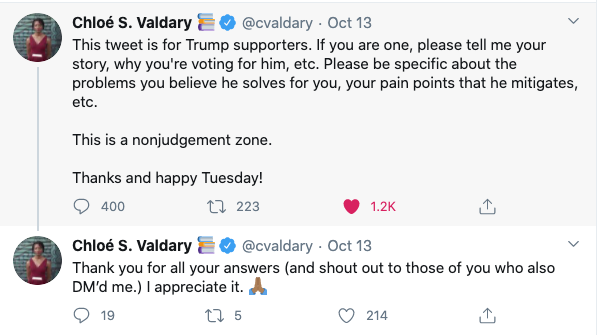Coleman Hughes Issues an Open Letter and a Stern Challenge to Ibram Kendi
In his analysis of Ibram Kendo's best-selling book, How to be an Anti-Racist, Coleman Hughes points to: 1) unsubstantiated claims, 2) misstated claims and 3) vague terms and 4) absurd claims from Kendi's earlier writings, such as Kendi's earlier belief that "white people are Aliens."
Here is a excerpt from Hughes' discussion:
Kendi says what they probably believe but are too afraid to say namely: "Racial discrimination is not inherently racist." He continues "the defining question is whether the discrimination is creating equity or inequity. If discrimination is creating equity, then it's anti-racist. If discrimination is creating inequity then it is racist. The only remedy to racist discrimination is anti-racist discrimination. The only remedy to pasT discrimination is present discrimination. The only remedy to present discrimination is future discrimination."
In so far as Kendi's book speaks for modern anti-racism then it should be praised for clarifying what the "anti" really means. Fundamentally, the modern anti-racist movement is not against discrimination. It's against inequity which, in many cases, makes it pro-discrimination. The problem with racial equity defined as numerically equal outcomes between races is that it's unachievable.
Without doubt, we have a long way to go in terms of maximizing opportunity for America's most disadvantaged citizens. Many public schools are subpar and some are atrocious. A sizable minority of black children grow up in neighborhoods replete with crime and abandoned buildings, while the majority grow up in single parent homes. Too many black people are behind bars.
All of this is true, yet none of it implies that equal outcomes are either possible or the proper goal. Kendi discusses inequity between ethnic groups, for example, which he views as identical to inequity between racial groups, as problems created by racist public policy. This view commits him to some bizarre conclusions. For example, according to the 2017 census bureau data, the average Haitian American earned just 68 cents for every dollar earned by the average Nigerian American. The average French American earned just 70 cents for every dollar earned by the average Russian American. Similar examples abound, so ask yourself: "Is it more likely that our society imposes policies that discriminate against American descendants of Haiti and France but not Nigeria or Russia? Or that disparities between racial and ethnic groups are normal even in the absence of racist policies?
Kendi's view puts him firmly in the first camp. "To be anti-racist," he writes "is to view the inequities between all racialized ethnic groups," by which he means groups like Haitians and Nigerians, "as problems of policy." Put bluntly, this assumption is indefensible. What would it take to achieve a world of racial equity top-down enforcement of racial quotas? A constitutional amendment banning racial disparity? A department of anti-racism to pre-screen every policy for racially disparate impact? These ideas may sound like they were conjured up to caricature anti-racists as Orwellian super villain, but Kendi has actually suggested them as policy recommendations.
As Hughes explains at the end of his video, Kendi has actually proposed a vast bureaucracy, unaccountable to voters, charged with making sure that no national, state or local law is "racist." This bureaucracy would also be empowered to investigate private businesses and to monitor the speech of public officials to make sure that "racism" (broadly defined by Kendi, to include a complete lack of numerical disparities in hiring) exist.
Hughes ends his video with the following:
[From Wikipedia]: Coleman Cruz Hughes (born 1996) is an American writer and opinion columnist on issues related to race and racism at the online magazine Quillette, a fellow and contributing editor at City Journal, and host of the podcast Conversations with Coleman. As Coleman Hughes comments: "What could possible go wrong?"

